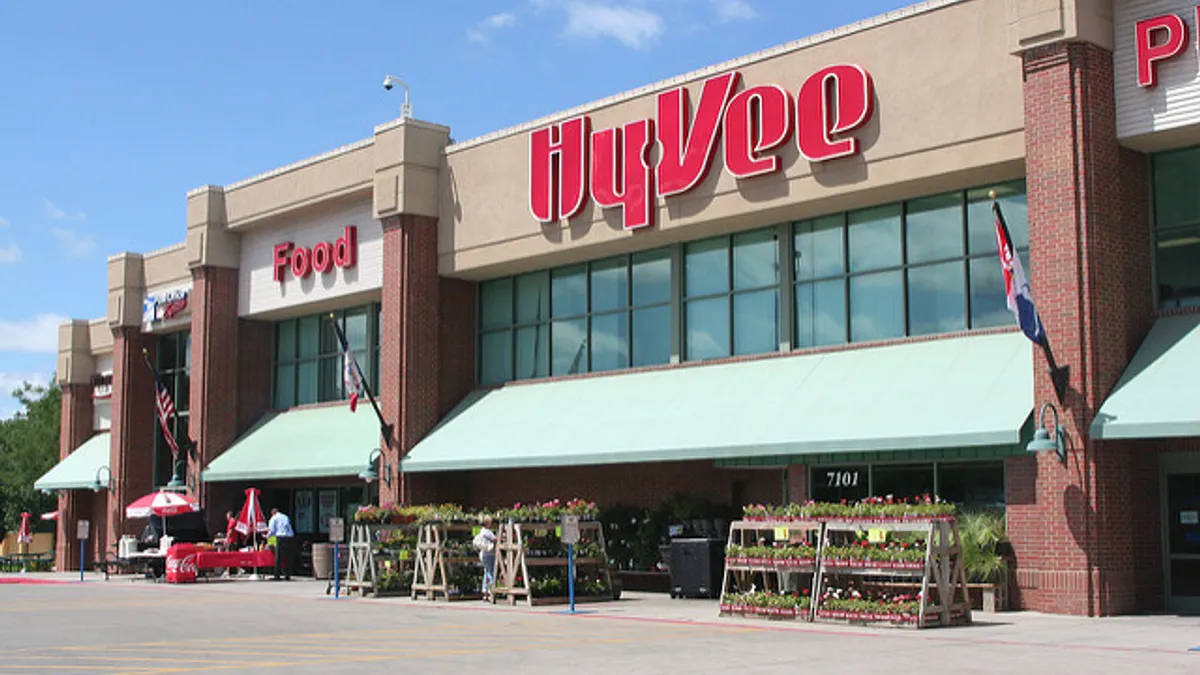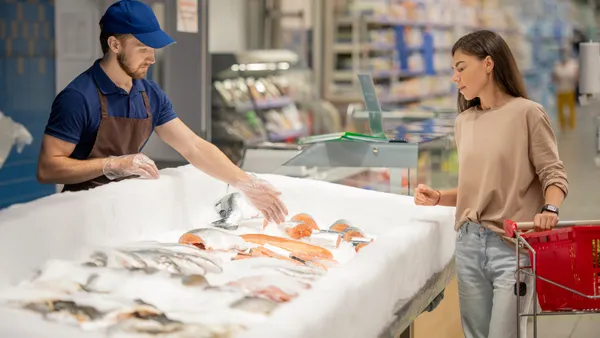Dive Brief:
- Hy-Vee is partnering with mobile app company Flashfood to pilot a new program that would allow shoppers to purchase at a reduced price food products that are approaching their “best before” date. The Midwestern grocery chain is hoping to fight food waste through the partnership. The new service launched on Friday at the store’s Madison and Fitchburg locations in Wisconsin.
- Shoppers can download the app for free to see which meat, dairy, bread and snack items are available in the Flashfood zone at each store. They can also make their purchase directly in the app and pick up their discounted goods in the store at any time.
- Flashfood, which is also active in Canada, has partnered with five supermarkets to date and claims to have saved over 100,000 units of perfectly edible food from ending up in the trash.
Dive Insight:
This is not Hy-Vee's first effort to tackle food waste. It’s also launched a program to turn spoiled food into compost that it can sell at its garden centers and boosted sales of imperfect produce in its “misfits” section.
A variety of other major grocers have created food waste-focused platforms. Tyson also partnered with Flashfood, offering boxes of surplus food through a direct-to-consumer program called flashfoodbox, while Kroger established a $1 million innovation fund to tackle fund waste and pledged to expand its offering of imperfect produce. Walmart launched an intelligent food system, Eden, to better manage shelf inventory and Trader Joe’s donates products set to expire the next day.
In the ongoing discussion surrounding sustainability in the food system, one of the biggest topics is food waste. Each year, more than one-third of food produced for human consumption ends up being wasted, including 6.7 billion pounds of fresh produce. Although some of this is attributable to the rigors of the supply chain, the biggest driver is consumers’ perception and taste.
Best-by dates have played a big part in creating food waste. Despite many consumers’ belief to the contrary, these dates have nothing to do with whether consuming a particular product is safe. Sell-by dates are merely meant to convey to a retailer how long the distributor’s products should be displayed. What consumers see, however, is a skull-and-crossbones warning label should they purchase something close to the date. Food companies are even considering scrapping this label system to address the widespread confusion.
Despite the broad awareness of food waste’s big problem, many supermarkets are still failing to take enough steps to cut down on the amount of food they toss out. According to a recent report, the 10 largest U.S. grocers received low grades on metrics like transparency, steps to reduce waste and where they send their discarded food. Concerns over potential liability for unsafe food and cumbersome logistics are two roadblocks impeding their progress.
Technology-based solutions like Flashfood could help companies make significant progress on food waste mitigation. Startups like Food Cowboy, Feedie, and Foodfully as well as 12 other app developers are trying to create digital inventories of imperfect produce or uneaten wares so that food distributors or chefs can make good use of them at a reasonable price. A number of startups have also cropped up to develop novel packaging technologies, including edible packaging. Silicon Valley seems to be onboard, having doled out $125 million in capital support during 2018.












